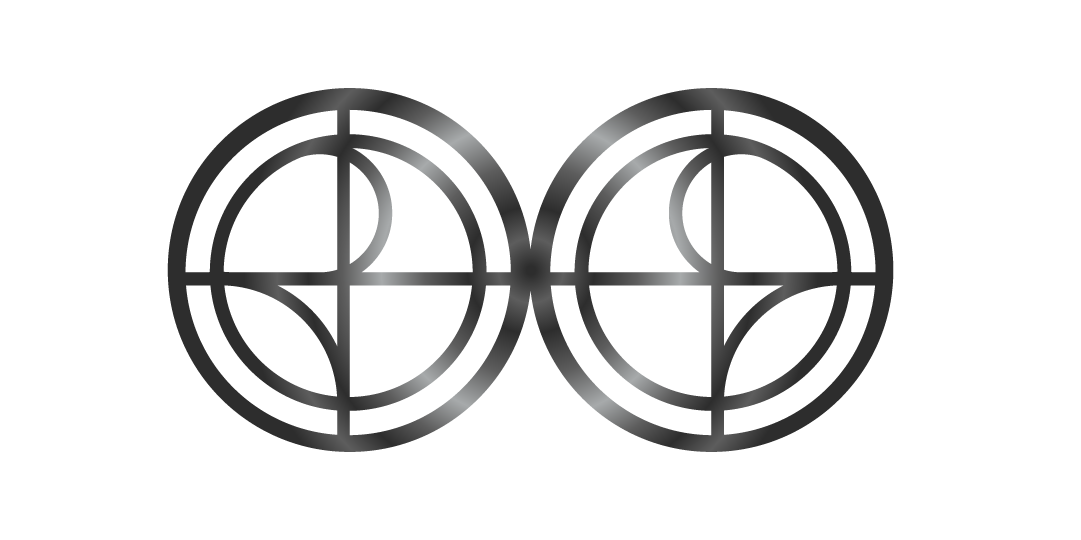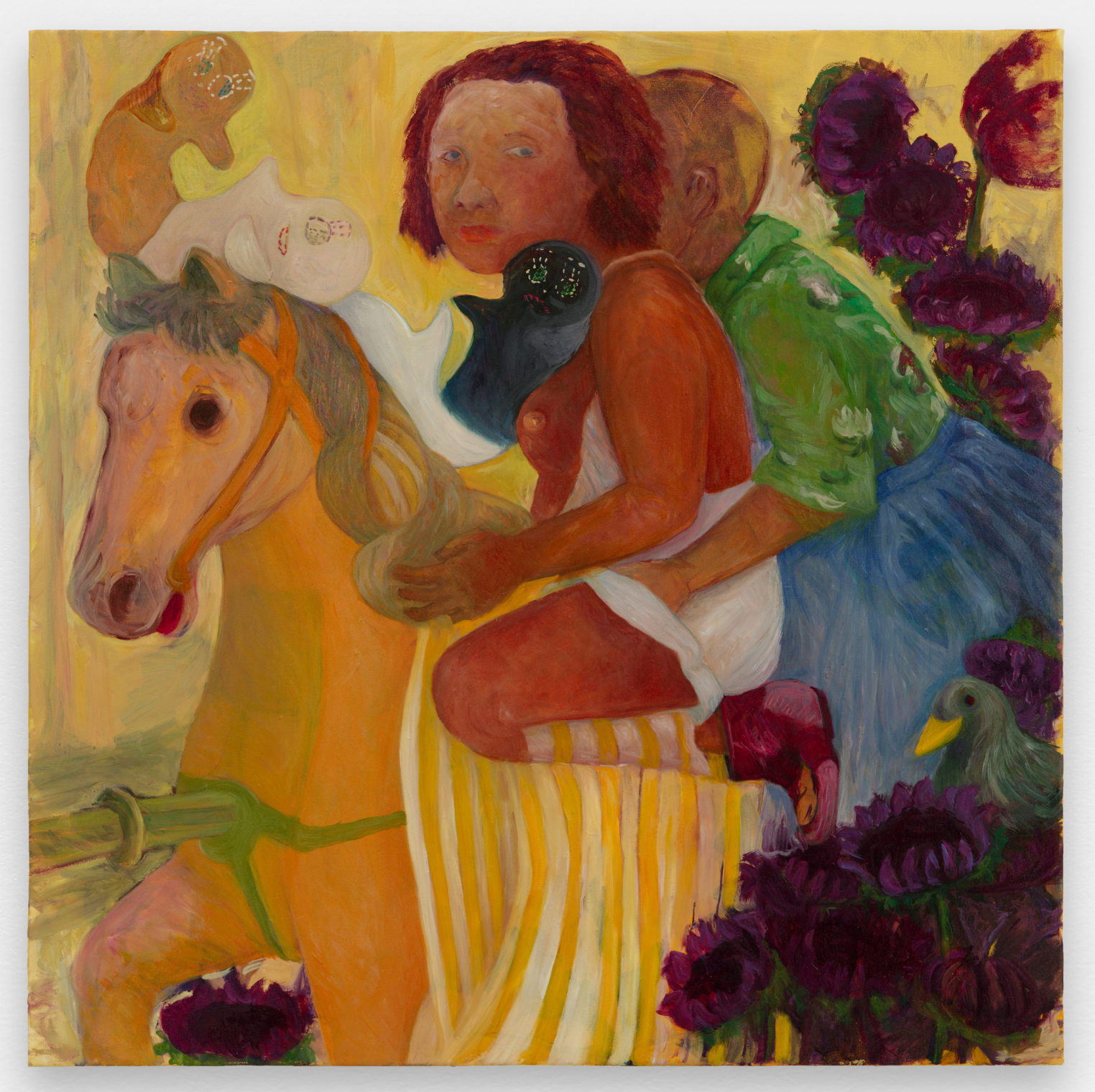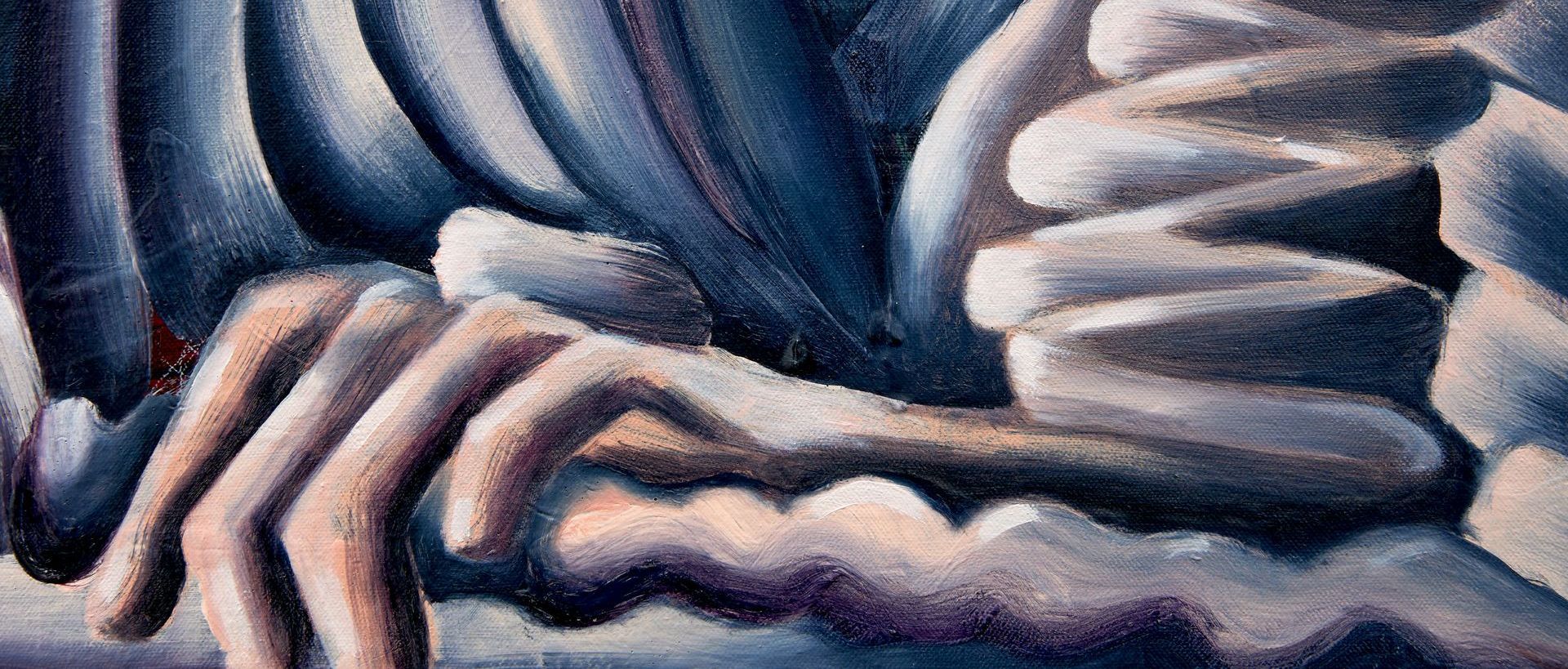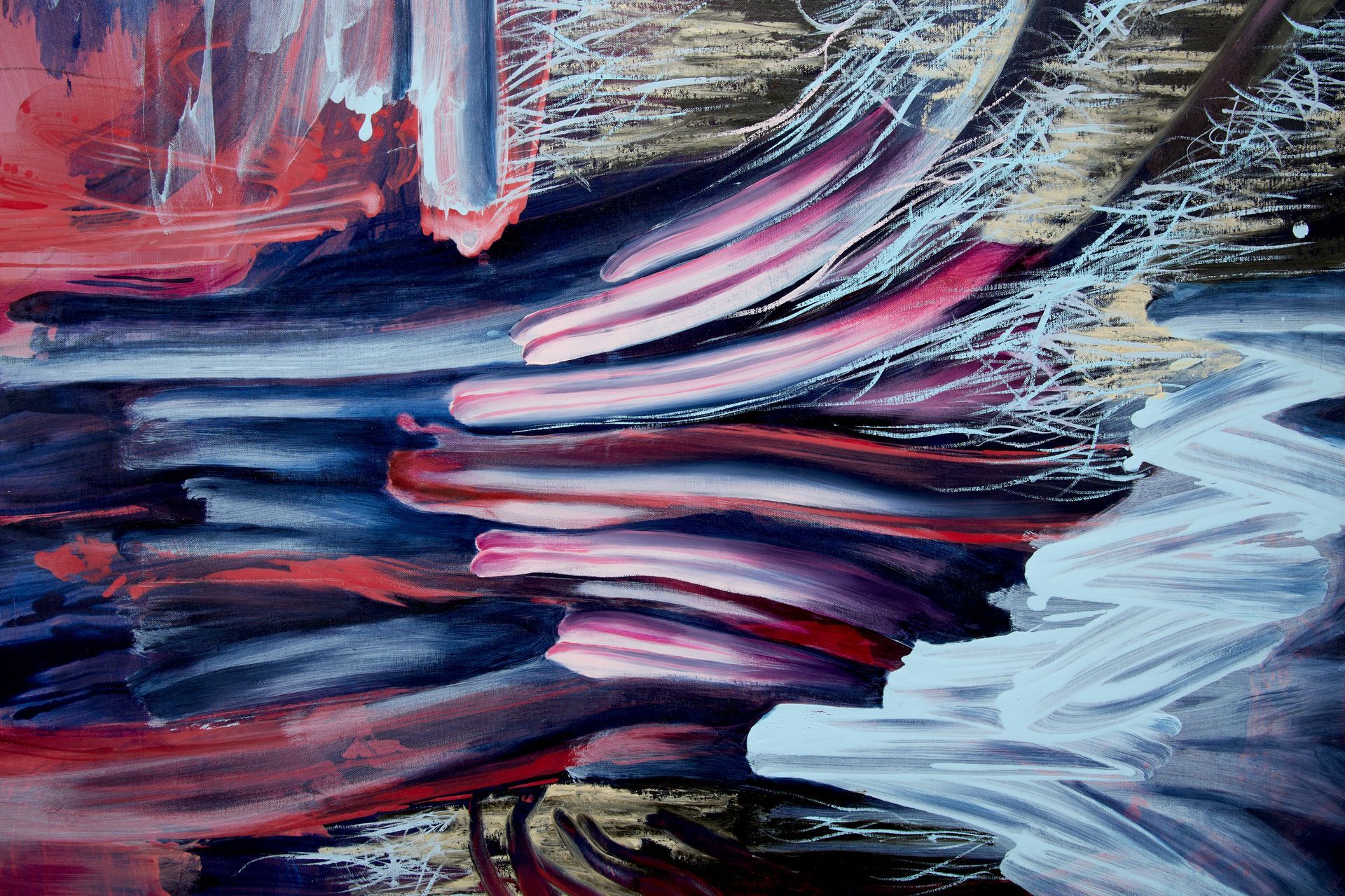Expanded Painting in 'Virtual Reverence': Pixels, Live Camera, and Video Art
Exploring the Boundaries of Art: Expanded Painting, Pixels, and the Digital Crucifix in 'Virtual Reverence
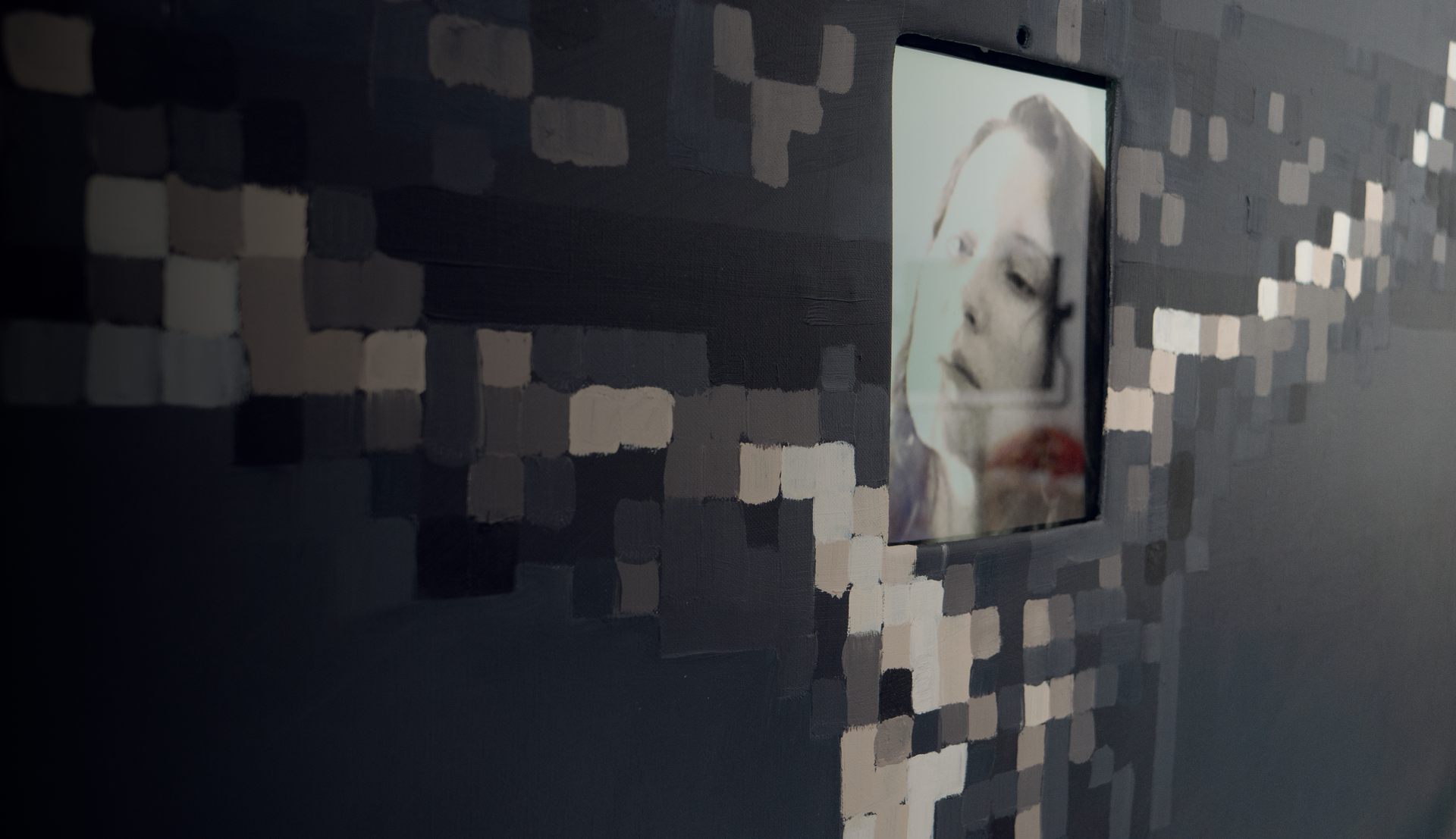
Expanded Painting: Pushing the Boundaries of Traditional Oil on Canvas
In this expanded painting, I have pushed the boundaries of traditional oil on canvas by cutting a hole in the canvas to frame a video screen. This piece, titled Virtual Reverence (2024), includes a live camera that projects a real-time image onto the screen, transforming the artwork into an interactive mirror for any viewer who approaches it.
Video Integrated Art: The Concept Behind Virtual Reverence
During my latest solo exhibition Virtual Reverence in April 2024, titled after this piece, I showed this piece with the live camera feed also being projected into a separate room within the exhibition. This setup created a compelling dynamic, as viewers were unaware that their faces and behaviors were being broadcast live to an audience in another room. Through this expanded painting, I explore themes of social media and the act of broadcasting ourselves to the world, emphasizing how our images can be unknowingly used to capture the attention of others.
The oil painting that frames the video screen in Virtual Reverence depicts a pixelated crucified Jesus, reinforcing the idea that we see ourselves not only as 'the chosen one' but also as willing martyrs for the benefit of social media companies and big data.
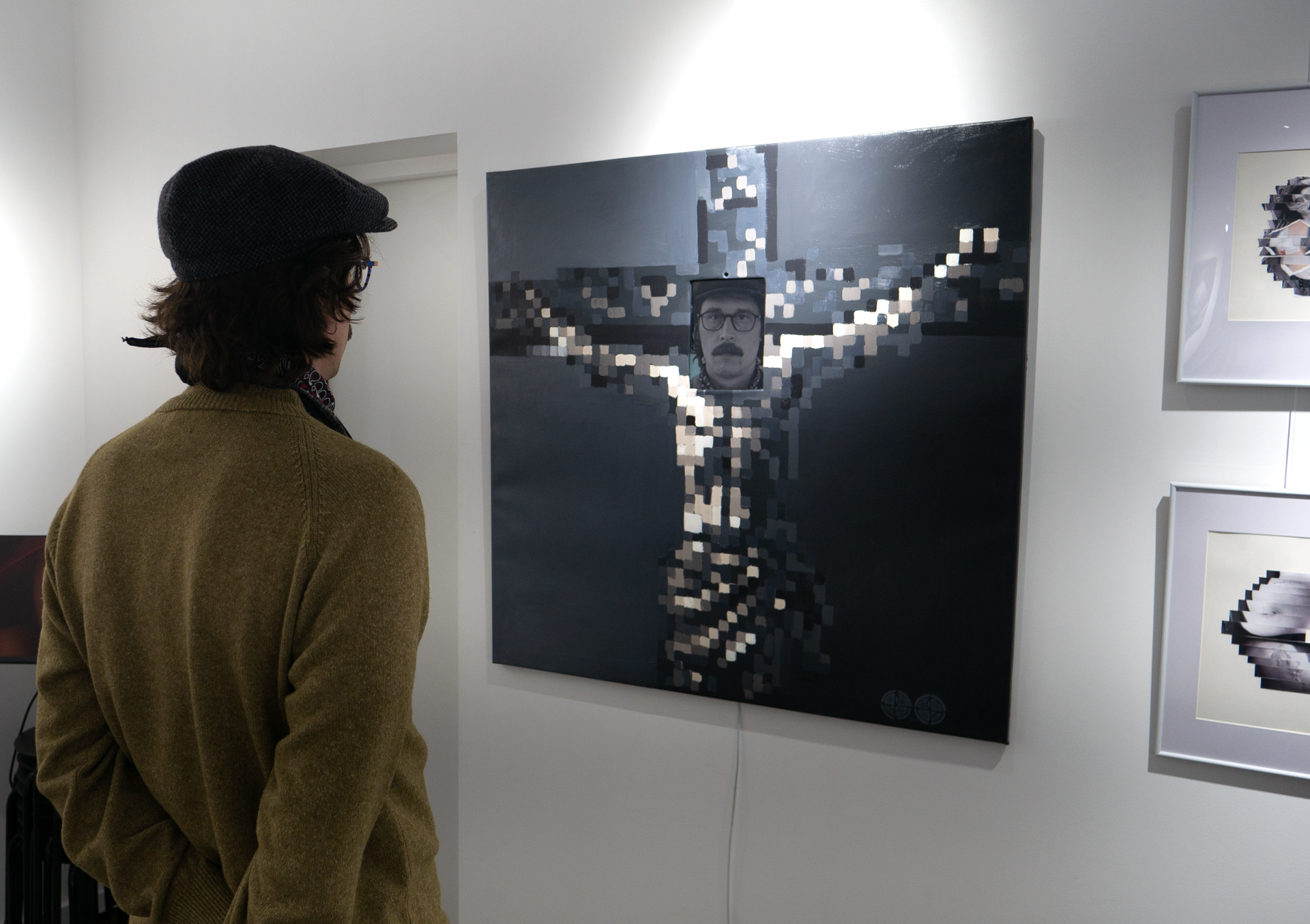
Pixels and Symbolism: The Crucifix and Jesus in Virtual Reverence
The oil painting that frames the video screen in Virtual Reverence depicts a pixelated crucified Jesus, reinforcing the idea that we see ourselves not only as 'the chosen one' but also as willing martyrs for the benefit of social media companies and big data. Image below: Full view of painting Virtual Reverence.
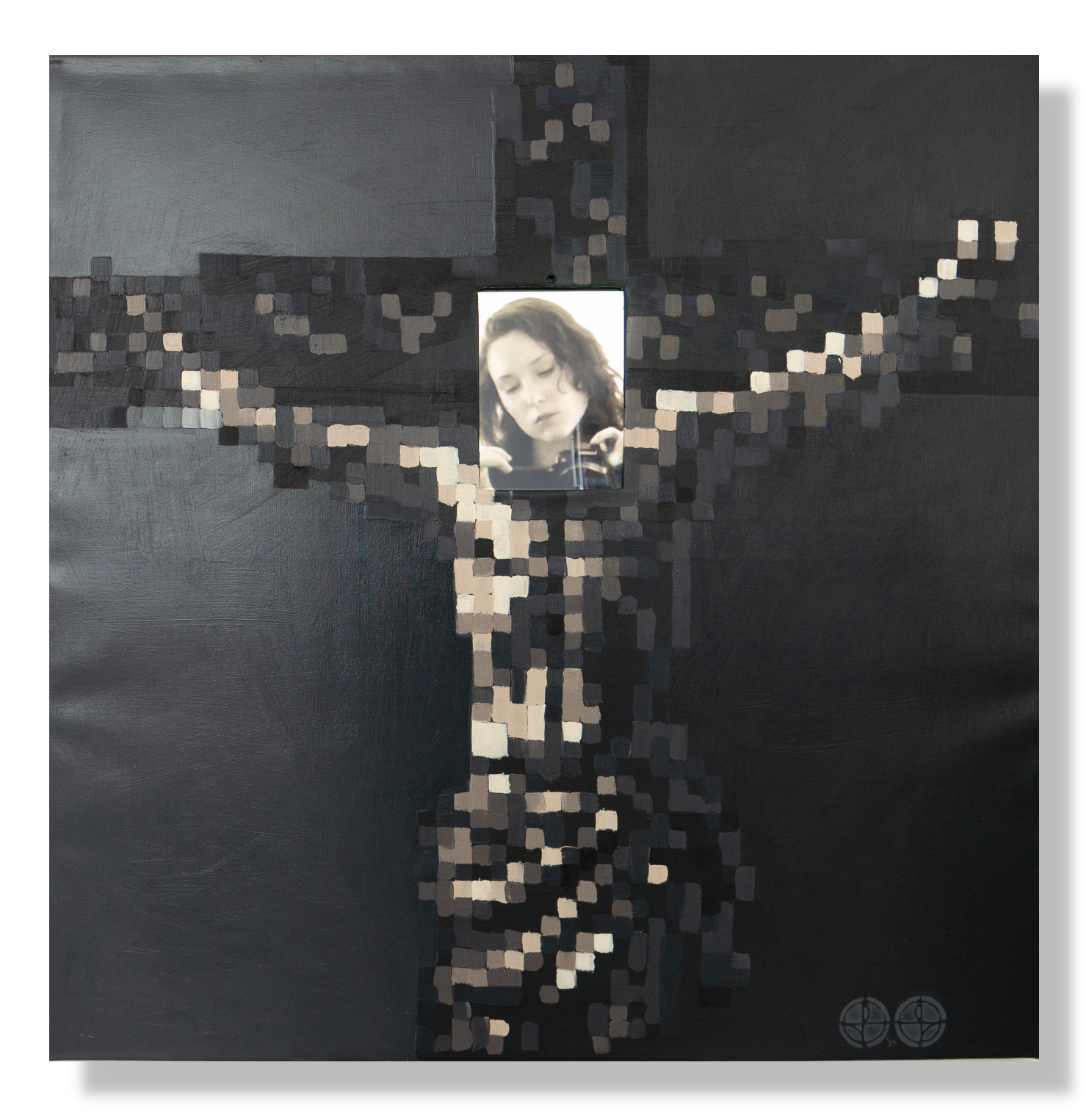
Art Beyond Technology: The Meaning of Virtual Reverence When the Screen is Off
It's always important for me that the artwork retains its meaning, even if the technology is not working or the battery is dead. Even when the screen is turned off, it serves as a black mirror that still reflects the viewer who approaches it (image below).
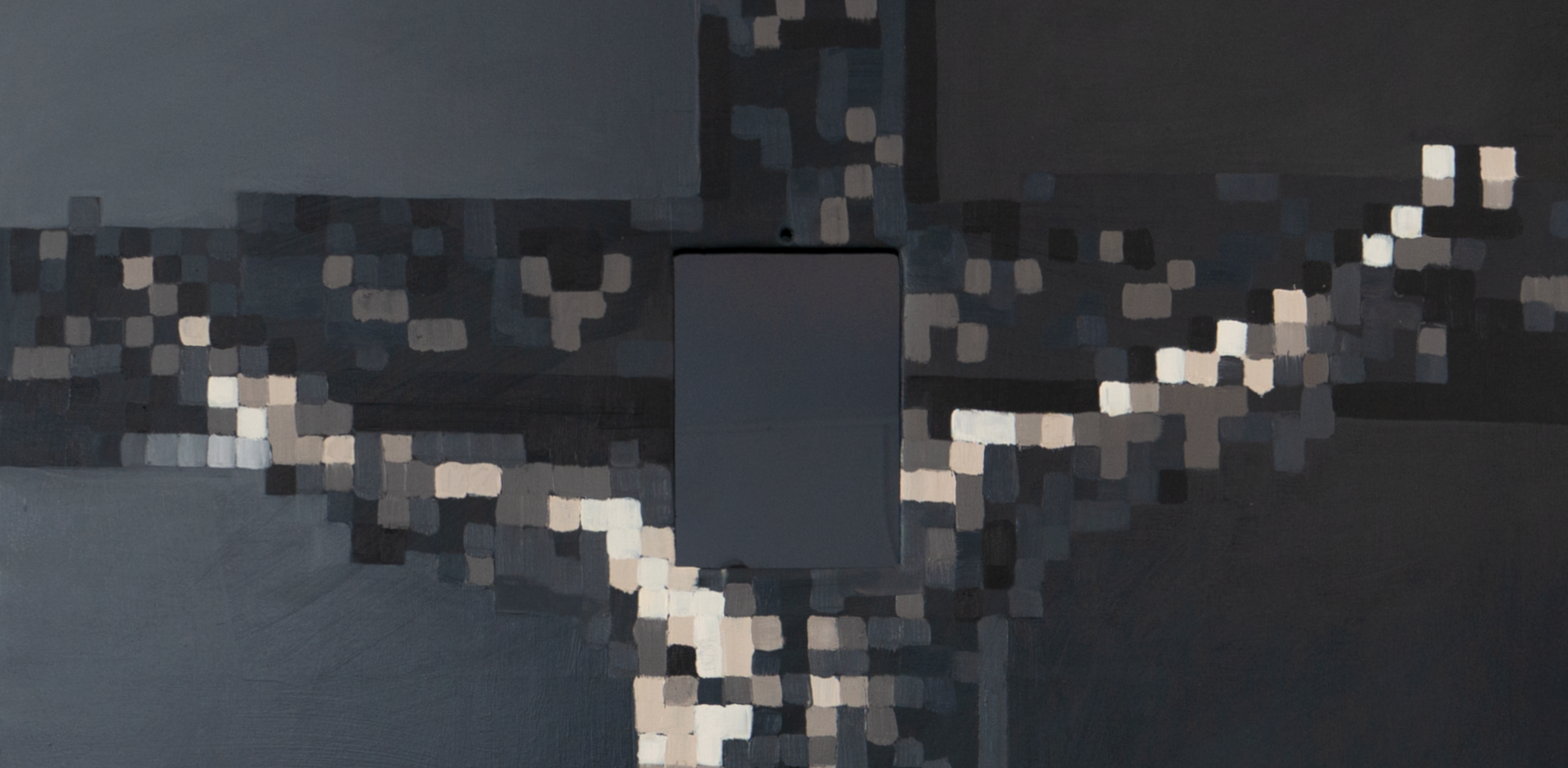
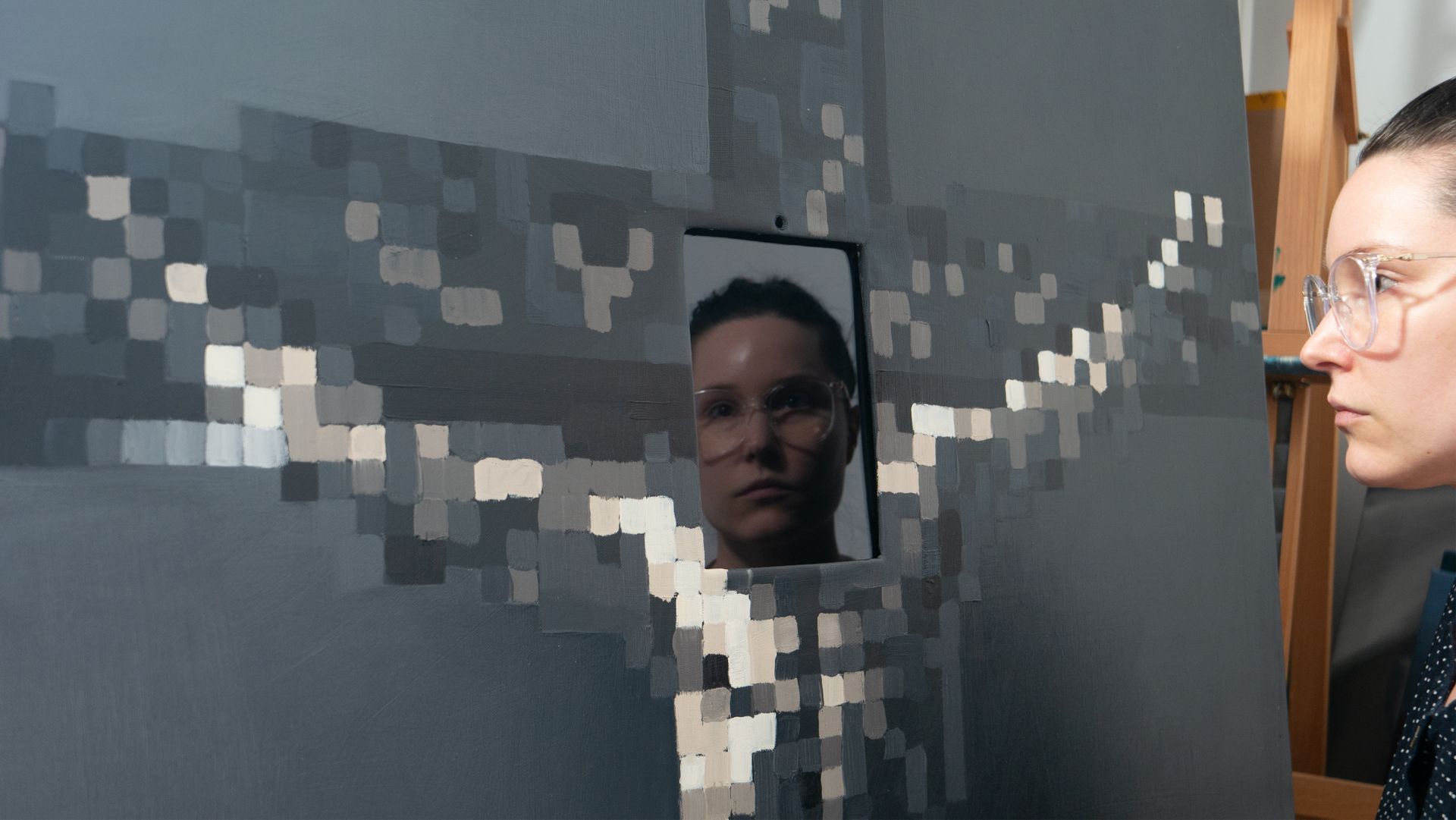
Crafting the Expanded Painting: From Stretcher Bars to Pixels
I stretched the canvas over custom support stretcher bars, carefully crafting the hole (frame) for the screen. I was delighted to witness the seamless execution of my concept, wrapping the canvas around the plexiglass strips. Another success—a moment of pride. Once again, that bliss that comes from experimenting with a new idea and seeing it come to fruition (image below is a page from my sketchbook showing preparatory work for the painting Virtual Reverence (2024)).
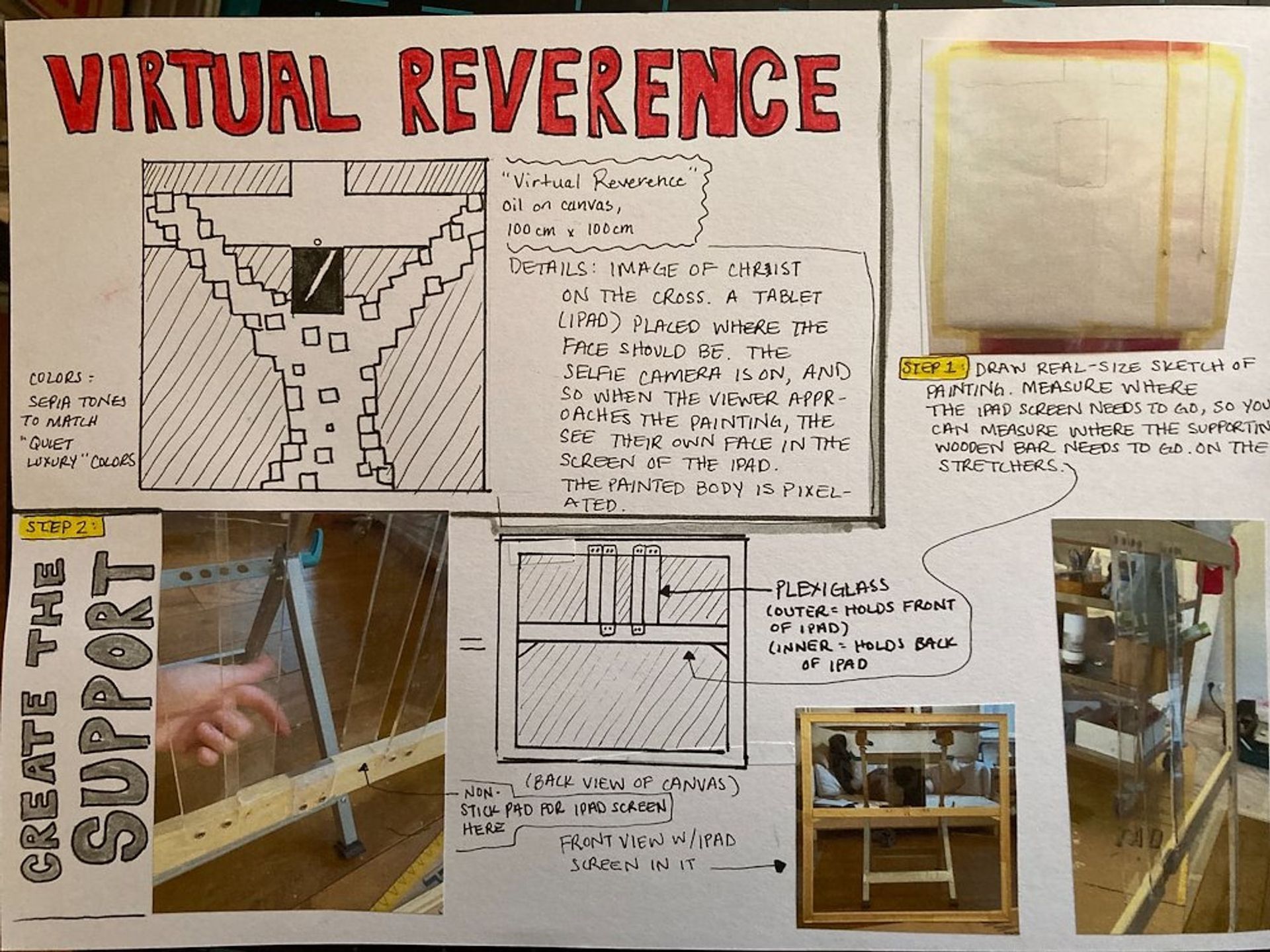
Pixelated Style: Exploring New Artistic Techniques in Virtual Reverence
Finally, it was painting time. I carefully selected colors that harmonized with one of the selfie camera program filters (sepia). To add versatility, I blended in some greys, anticipating the use of the camera filter in black and white. This marked my inaugural attempt at a pixelated style on canvas, an experience that brought me genuine joy. Exploring this style allowed for a more liberated approach to my brushstrokes, fostering a growing sense of looseness and spontaneity in my painting technique. Opting for a pixelated style not only granted freedom to my hand but also seamlessly resonated with the overarching concept of the art piece.
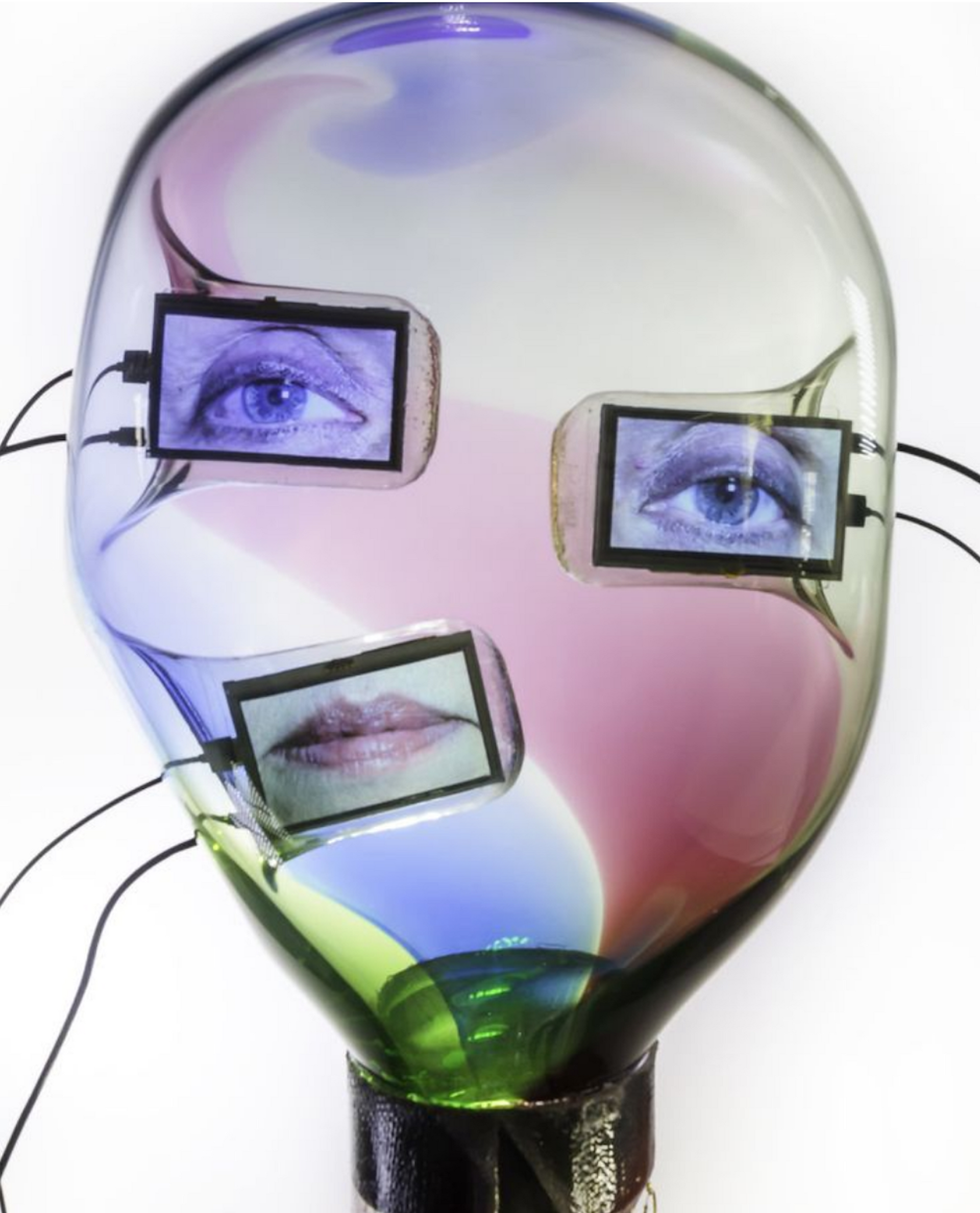
Influences and Inspirations: The Impact of Tony Oursler on Virtual Reverence
I believe the piece Virtual Reverence was made possible by the influence of Tony Oursler's work (image above) on me over the years. The way he has integrated screens into 2D and 3D work creates an entirely new universe that questions the boundaries between human and machine. In Oursler's work, I find connotations with The Ship of Theseus, mentioned by Plutarch and later modified by Thomas Hobbes. What are the parts that make us human? If a being or machine is recognized by another human as human, does that make them human? How many "passing" as human parts/elements have to be added to a machine before we recognize the machine as human? I believe these questions can be effectively explored through cross-genre art, such as expanded painting. By its very nature, expanded painting pushes and blurs boundaries, creating space for innovation and broadening our ways of thinking.
ABOUT THE AUTHOR:
Lala Drona is a Franco-American artist of Venezuelan heritage working between Paris and London. Her practice spans painting and video, probing the body not by appearance but by sensation—an interior landscape of memory, intervention, and transformation. She recently completed her Masters in Painting at the Royal College of Art. She also offers one-to-one fine art coaching and portfolio critique here.
